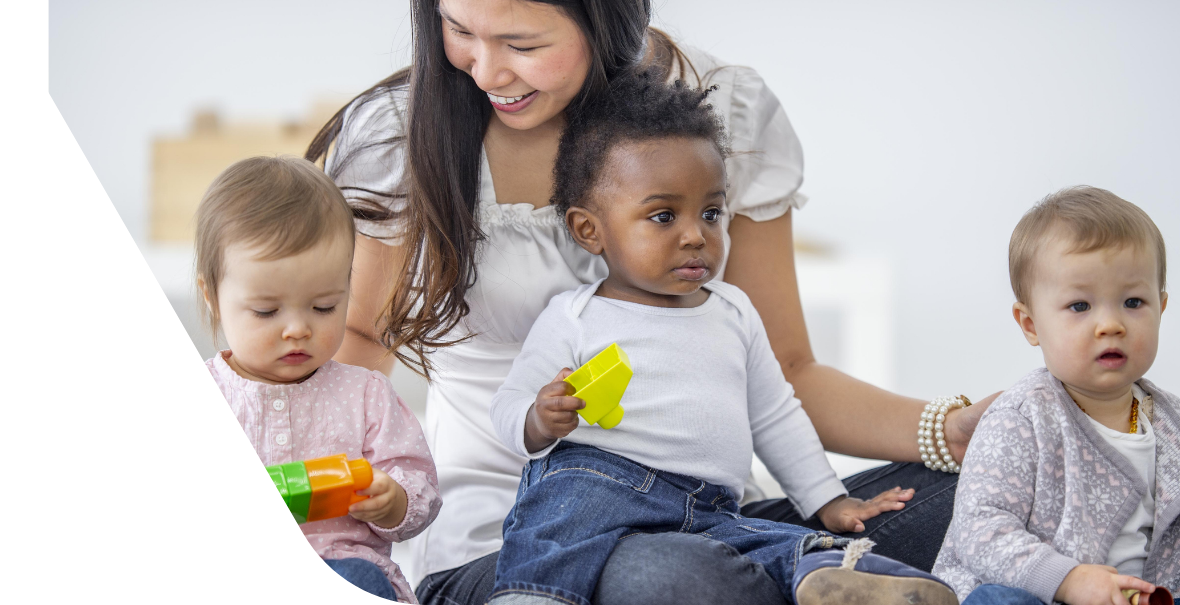Do Toddlers Have Empathy?
Do toddlers have empathy automatically, or is this something we need to teach them? In general, humans are born with the capacity for empathy; for example, newborn infants can recognize the cries of other newborns and cry in response. Likewise, two-year-olds are capable of empathy as well. Toddlers start developing true empathy between 18 and 30 months of age, as they start to develop a sense of self and a sense of others. If your child doesn’t yet exhibit empathy, don’t worry. There are ways to help cultivate this complex, valuable life skill in your toddler.
What does empathy look like in toddlers?
When toddlers are able to empathize, this includes:
-
Recognizing that she is her own person, a separate individual
-
Recognizing that others can have their own thoughts and feelings, different from her own
-
Understanding common feelings that most people experience, such as happiness, anger, sadness, or surprise
-
Being able to imagine how another person—or toddler friend—might feel in a situation, such as having to say goodbye to a parent at daycare
-
Being able to think of how to respond to the person in that situation, like comforting them with a toy or a hug
Ways to Teach Empathy to Toddlers
There are many ways to teach empathy to toddlers, and this includes fostering it within yourself as well as within your child. Consider the following ways to nurture empathy in your little one:
-
Demonstrate empathy with your child as well as for other people. Like many other skills that you teach your child, toddlers learn empathy by example. Not only does it benefit your toddler to be a role model and have respectful relationships with other people, it will benefit you as well. Toddlers will notice how you treat service industry workers, your partner, or other parents, and especially how you treat people who are different from you.
-
It is also important to practice empathy with your child. This can look like asking your child questions about their day, tuning into their unique personality and emotional needs, and validating their emotions. Help your child learn to sit with their complicated feelings rather than rushing to fix the problem right away. For example, if your child is mad that you took away something they weren’t supposed to play with, help your child label their feelings: “You are angry that I took the photo book away from you. I understand. You love looking at the photos, and it’s okay to be angry. When you are done being angry, you can help me bake cookies or play in the kitchen while I bake cookies.”
-
Talk about other people’s feelings. Let your child know that you recognize how other kids or adults are feeling. If you see someone who is angry at the grocery store, explain, “That person is angry that their card was declined. It’s very frustrating when you expect something to work and it doesn’t,” or “Rebecca is sad that you took away her doll. Please give her doll back and you can choose a different one to play with.”
-
Set high ethical expectations. When you make it a priority to care for others, your child will mimic that. Let your toddler know that caring about others is just as important as their own happiness. This includes teaching them that the world does not revolve around them, whether that is through teaching them to help clean the house, to be polite even when they are in a bad mood, or to be a good listener when other people are talking—children and adults.
-
Make suggestions for how your toddler can show empathy. From teaching them in the moment or bringing up ethical dilemmas to consider at dinner time, teach your toddler empathy by guiding them. One example of this is if your toddler’s friend is hurt, suggest you get ice together for his bruise. You may also ask your child how they would respond if a friend asked for help; guide them to a compassionate response if they are unsure.
Through pretend play, you can also demonstrate empathy to your toddler. Use stuffed animals or dolls, and make up scenarios to help your child imagine an empathetic resolution to a conflict.
-
Practice patience. Developing empathy is sometimes a lifelong goal. Don’t be discouraged if your toddler doesn’t pick it up immediately. It’s a complex skill to master, and many adults still struggle with it.
What Might Be Getting in the Way of Parents Empathizing?
If you find yourself feeling frustrated or impatient with your child, consider what might be getting in the way of empathy. Are you stressed about other things? Do you feel exhausted? Take time to reflect and try to enjoy self-care activities, such as going for a walk, reading a book, or taking a bath. Work with people you trust to help you find ways to cope and understand your toddler’s emotions. Caring for yourself will help you care for your child.
If you are concerned about your child’s ability to manage their emotions, or your own ability to manage your emotions, please see your healthcare provider.








